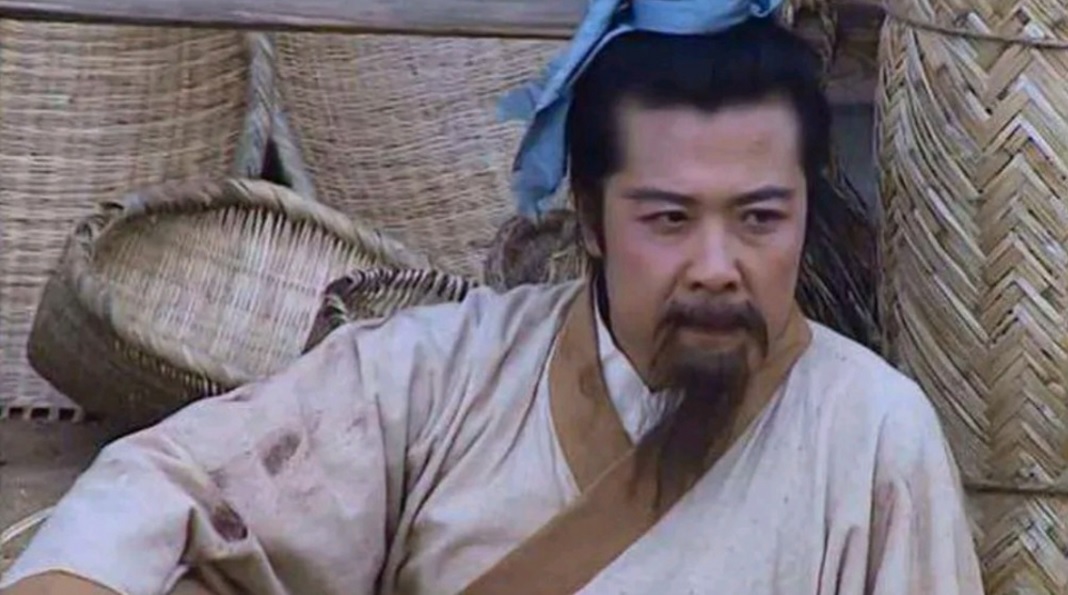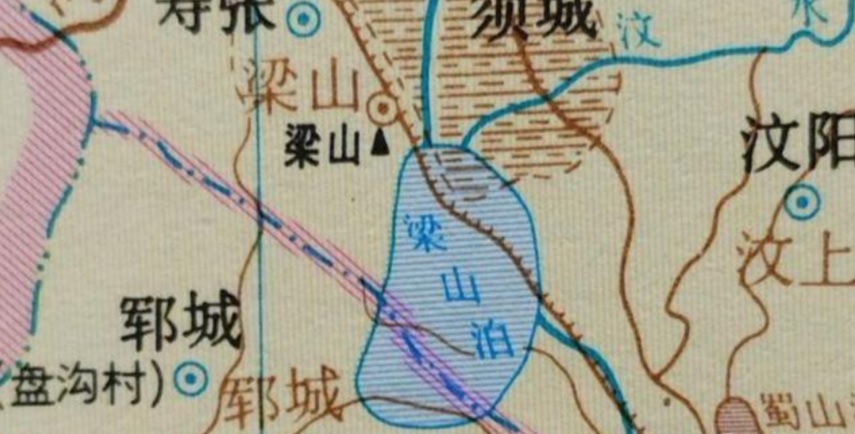Liu Bei lost his father early, but his wealthy uncle treated him as his own son, sponsoring him to study under high-ranking officials. During his studies, he enjoyed fine dogs, horses, and luxurious clothing, and befriended heroes like Cao Cao and Gongsun Zan. Upon returning to his hometown before the age of twenty, he formed his own militia. Was such a starting point better than 99.99% of Chinese people?
Answer 1: Yes, I can prove it.
The straw sandals he wove were brand-name.
LV’s.
Guan Yu and Zhang Fei tried them on, accidentally damaged them, couldn’t afford to pay, and thus followed Liu Bei to work off their debt.
Answer 2: Yes. The fact that he could study under the great scholar Lu Zhi alone placed him above 99.99% of Chinese people at the time.
The problem is that he participated in the power game of contending for supremacy.
In that era, fewer than 100 people in all of China could participate in this game.
Within this circle, his background was still the lowest.
Answer 3: Liu Bei originally had a father who was a government official, but he died before Liu Bei was born. Similarly, Liu Bei’s family was poor, and he could only make a living by weaving mats and selling straw sandals.
Does this mean 99% of Chinese people were…?? Are you fucking sick?
Answer 4: Dear friend, I bless you and your descendants to have such a favorable starting point. Don’t curse me—I’m speaking well of you, as you yourself acknowledged.
Apologies, I admit my inadequacy here. I never knew Lu Zhi had only two disciples, Liu Bei and Gongsun Zan. Nor did I know Gongsun Zan was so chivalrous, willing to support any classmate.
Answer 5:
People today are generally atomized, with few relatives and no experience in a clan-based society. Thus, they assume having a prominent elder in one’s clan must be rare. They think Liu Bei—whose grandfather was a county magistrate—qualifies as an extraordinary “third-generation official.” This entirely imposes modern atomized society’s logic onto a clan-based historical context. In today’s single-child or small families, social resources accumulated by ancestors are highly concentrated on one or two descendants. Especially since current officials often experienced family planning policies, leaving few heirs—so even distant connections to a county head or department head seem remarkable.
Liu Bei was indeed a magistrate’s grandson, but in his era, this meant something entirely different (even a modern mayor’s grandson is unremarkable). A county magistrate then could father six or seven sons, who in turn could produce six or seven sons each. Excluding non-lineal and female members, having ten grandsons in two generations was commonplace. Historical records don’t specify Liu Bei’s uncles or clansmen, nor whether his father was the main heir. But per Chronicles of the First Ruler: “When young, Liu Bei played beneath trees with many children of his clan.” This implies numerous clan brothers; his father may not even have been the primary heir. His “third-generation official” status, like his “descendant of Prince Jing of Zhongshan” claim, was ubiquitous. Seven or eight out of ten Liu clansmen claimed imperial lineage.
This wasn’t unique to the Han—even in the supposedly rigid class-stratified Wei-Jin era, many from top families were destitute. Like Liu Bei, countless aristocrats were “orphaned young and impoverished”:
- Sun Sheng’s ancestor was a Cao Wei general; his great-grandfather, grandfather, and father were all governors (Liu Bei’s grandfather was merely a magistrate, his father a minor clerk).
- Yuan Can’s uncle was a governor, another a grand commandant—yet he relied on his mother’s weaving to survive.
- Others like Fu Xuan (two generations of governors) and Shen Yue (Wuxing Shen clan) all came from illustrious families but faced childhood poverty.
They were recorded in history only due to exceptional talent—countless others starved or lived obscurely. Compared to these true elites, what was Liu Bei’s background? If his start surpassed 99.99%, wouldn’t those mentioned belong to the top 0.0001%?
This phenomenon isn’t ancient history: in 1950s–60s rural Hunan/Hubei/Jiangxi, most clan genealogies listed military officers. Yet they still farmed. In clan societies, polarization among relatives was normal. With so many kin, nepotism was limited—only the core few benefited. How could a “benefactor” support hundreds of clansmen?
Don’t be fooled by Liu Bei’s “third-generation official” label—it meant nothing.
Now, regarding his teacher Lu Zhi: Lu was a great scholar and high official. But don’t assume studying under him required powerful connections. Key points: - “At fifteen, his mother sent him to study. He and clansman Liu Deran/Liaoxi’s Gongsun Zan learned from former Jiujiang Governor Lu Zhi of their commandery.”
- When Liu Bei studied under him, Lu Zhi had resigned due to illness and was teaching publicly in Zhuojun—not as an inaccessible dignitary. Attending his lectures made one his “disciple,” with near-zero barriers.
Understand Han-era private academies (sīxué): They weren’t elite institutions but low-threshold basic education. For example, Eastern Han scholar Lou Wang once taught 9,000 students—not all nobles. Private schools charged fees but had lower entry barriers than state/academy schools. Many scholars like Lu Zhi’s friend Zheng玄 taught publicly. Private academies were open lectures, not exclusive apprenticeships.
As long as one paid tuition (sometimes waived for the poor, like for Bing Yuan), enrollment was easier than modern grad school. Even an illiterate swineherd like Cheng Gonggained access by gathering firewood for a school.
Given this, Liu Bei attending Lu Zhi’s local lectures was utterly unremarkable. If Zhuojun had 1,000 students, likely 10% “studied under Lu Zhi.” Imagine a janitor auditing Hillary Clinton’s Columbia lectures and boasting he’s her student—absurd.
Liu Bei, with his rogueish habits (“fond of dogs, horses, and fine clothes”), disliked studying. Lu Zhi neither favored nor remembered him. Liu Bei gained little beyond basic literacy; he stood out among scholarly peers.
If an orphaned mat-weaver’s start surpassed 99.99%, what about his clan brothers or Lu Zhi’s thousands of students? Were Han Chinese living in hell?
Answer 6: An ordinary person wouldn’t receive clan funding for education or build such connections. For example, Liu Deran—son of Liu Bei’s sponsor—studied with Lu Zhi too but left no legacy beyond his name.
Ultimately, like his ancestor Liu Bang, Liu Bei possessed charisma that made people respect him:
- His clan funded his education.
- Guan Yu/Zhang Fei treated him as their leader.
- Gongsun Zan saw him as a brother.
- Youth flocked to him.
- Merchants bankrolled his militia.
- An assassin spared him out of admiration.
- Cao Cao declared, “Only you and I are true heroes.”
This “demon charm” outweighed his humble origins.
Answer 7: It was a clan uncle, not a paternal one. This uncle sent him because he saw potential—not everyone got such treatment.
Imagine a distant relative insisting on funding your overseas education just because they “believe in you.”
Answer 8: “Losing his father early” was the starting point.
The uncle’s support and militia at 20 came later—those weren’t his “opening conditions.





Gave luckyslot1 a go last night. Didn’t get rich but had a laugh. Nothing too special, but solid enough. Take a look at luckyslot1, could be your lucky day.